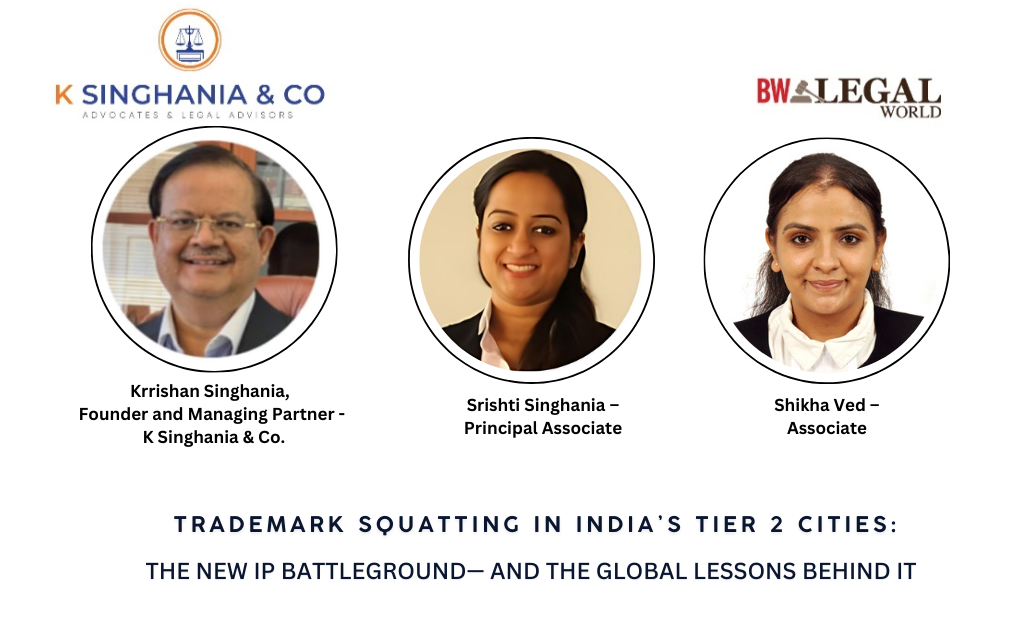The Italian Supreme Court, in a matter relating to trademark infringement of the popular brand ‘Gucci’ has put forth the opinion that, it makes no difference whether those who are accustomed to purchasing original products are not misled about the origin of the product bearing the infringer’s trademark, because such a product can be targeted at consumers who consciously choose it not for its intrinsic decorative or material characteristics, but only for its strong resemblance to the “famous” one, perhaps to “pass it off” as the original to less attentive or qualified consumers. It comes after the Gucci maison filed a last appeal against a small company that had received two national Italian trade-marks including a “G” formed in a slightly different form from the iconic one that defines Gucci and that had won at first instance and on appeal against the fashion house.
K S & Co Comments
Enhanced protection is important for well-known brands like Gucci because of the impact and control they have over the market and the reputation they hold in eyes of the buyers. They can be easily duplicated otherwise and can potentially lose revenue because of it.
Google didn’t infringe digital photo frame patent: Jury
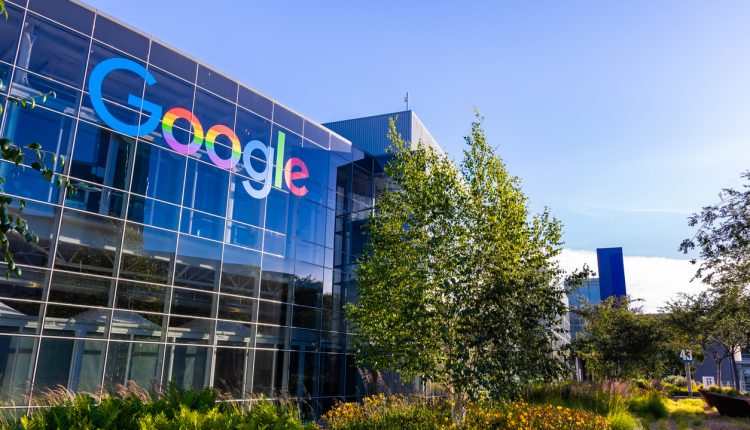
Profectus, based in Texas, filed a patent infringement lawsuit against Google in 2020, alleging that its Nest Hub and Nest Hub Max, which handle smart-home operations, play music, and digitally display photographs, infringe on its patent. A mountable digital photo frame is the subject of Profectus’ patent.
On October 6, a jury in the Western District of Texas found that two of Google’s Nest smart-home products do not infringe on a digital picture frame patent owned by Profectus Technology LLC, and that the asserted claims of the patent-at-issue are invalid.
The seven-person jury determined that Google’s Nest Hub and Nest Hub Max products do not infringe on Profectus’ U.S. Patent No. 6,975,308. The verdict occurred in Judge Alan Albright’s seventh patent jury trial, and it was the fifth time juries ruled in favour of the defendant.
K S & Co Comments:
The jury found that Google did not willfully infringe the patent. Profectus had sued technology companies like Dell and Huawei in 2016 for patent infringement for the mountable digital picture frame and was unsuccessful then as well.
CAFC reverses PTAB obviousness ruling, clarifying ‘Reasonable Expectation of Success’ standard
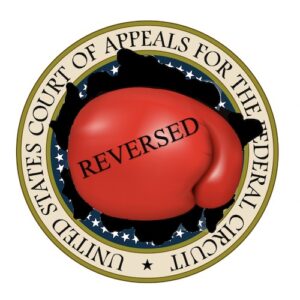
The US Court of Appeals for the Federal Circuit (CAFC) overturned a decision by the US Patent and Trademark Office’s Patent Trial and Appeal Board (PTAB) that the University of Strathclyde’s patent claims for a method of photoinactivating antibiotic-resistant bacteria without using a photosensitizing agent were unpatentable. Based on the prior art, the PTAB determined that claims one, two, three, and four of U.S. Patent No. 9,839,706 (‘706 patent) were obvious. The court ruled that the PTAB’s findings were not supported by sufficient evidence.
While clarifying the standard ‘Reasonable Expectation of Success,’ the CAFC stated: “In this case, where the prior art evidences only failures to achieve that at which the inventors succeeded, no reasonable fact finder could find an expectation of success based on the teachings of that same prior art.”
K S & Co Comments :
The CAFC in this case made an important ruling in which it clarified that the standard ‘Reasonable Expectation of Success’ will apply to determine obviousness where the inventor has modified or added two or more prior art to achieve the claimed invention. However, the PTAB did not rule in consideration of such evidence and thus, the claimed invention cannot be held as obvious based on prior art in the absence of reasonable expectation of success.
United States International Trade Commission (USITC)
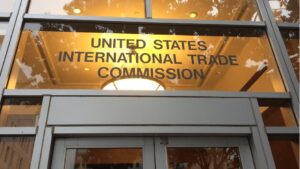
The United States International Trade Commission (USITC) has instituted an investigation into wireless devices manufactured by Lenovo and Motorola. The investigation has been launched under Section 337 of the Tariff Act of 1930 for infringement of certain patent claims.
The complaint alleges violations of section 337 based upon the importation into the United States, the sale for importation, and the sale within the United States after importation of certain electronic devices having wireless communication capabilities and components thereof by reason of infringement of certain claims of U.S. Patent No. 8,204,554 (“the ‘554 patent”); U.S. Patent No. 7,319,889 (“the ‘889 patent”); U.S. Patent No. RE 48,629 (“the ‘629 patent”); and U.S. Patent No. 8,416,862 (“the ‘862 patent”). The complaint further alleges that an industry in the United States exists as required by the applicable Federal Statute.
K S & Co Comment:
A complaint alleging patent infringement has caused the USITC to launch an investigation into certain wireless devices manufactured by Lenovo and Motorola. The power to launch such investigation rests under Section 337 of the Tariff Act, 1930 based on the ground of importation of such electronic devices (that infringe existing US Patents) into the United States.
Chicago bases tech firm to sue Facebook for infringing upon its name
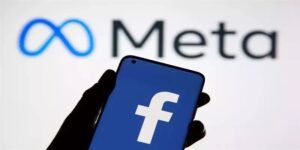
The tech firm called Meta Company is going to court against Facebook for stealing its name and livelihood after the social media giant rebranded themselves as ‘Meta’.
Nate Skulic, the founder of Meta Company, claimed in a statement that after Facebook failed to buy them, they planned to “bury” the company through the media. Skulic claims that Facebook is now infringing on the Meta firm’s intellectual property rights as a result of a failed attempt to buy the company. Meta Company was granted a live trademark in 2016, with the registrant owner based in Chicago, Illinois.
K S & Co Comment:
If a company has been granted a trademark before someone else comes up to claim it, the laws in place are there to protect the original owner. In this case, if Meta Company has all the necessary conditions secured their way, then Facebook will have to look for alternatives to get their rebranding in place.
3D SHAPE TRADE MARKS
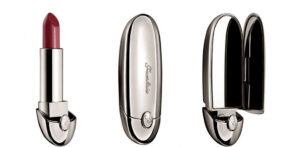
LIPSTICK :
The French company, Guerlain, filed a trade mark application in the European Union (EU) to register the shape of one of its lipsticks
The application was rejected on grounds of non-distinctiveness, with the argument being twofold. The shape does not depart sufficiently from the norm, and consumers will not perceive the shape as a badge of origin, in other words a trade mark. The case went on appeal to the Board of Appeal, which upheld the refusal. But Guerlain persisted and took the matter up to the General Court.
The General Court took a different view from the Board of Appeal. It held that the trade mark is visually distinguishable from other lipstick products. Among the reasons: The lack of any flat surfaces, which means that the lipstick cannot stand up. The court described the shape of the lipstick as being more like a boat or bassinet. The presence of a hinge which opens up as a mirror.
The court was impressed by the fact that the shape had been lauded in the media, where it had been described as “revolutionary!” The court said that the memorable shape of the lipstick would clearly be seen as something departing from the norms and customs of the industry. Consumers would therefore regard it as a badge of origin. So the trade mark application should be allowed to proceed. Therefore, the Application was allowed.
K S & Co Comments:
The registration of 3D trademark is very difficult to obtain. This decision is a victorious attempt to obtain registration of a three-dimensional EU trade mark in respect of the shape of one of their lipsticks. This will also give other brand owner’s hope of obtaining 3D trade mark rights if they have products which they can show depart from the norms and customs of their sector, and which they believe consumers will view as a badge of commercial origin.
Nippon Steel sues Japan business partner Toyota over patent
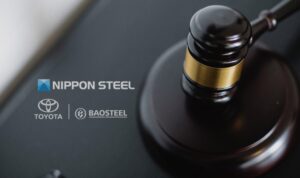
Nippon Steel Crop has filed a lawsuit against Toyota Motor Crop. In a rare episode of court battle over intellectual property, Japan’s leading steelmaker and top carmaker fought over a patent for technology used in electric motors.
Nippon Steel, located in Tokyo, filed a case in Tokyo District Court on October 14, 2021, seeking compensation for losses exceeding 20 billion yen ($177 million). The complaint also names Baoshan Iron & Steel Co., or Baosteel, a Chinese steelmaker that manufactures and provides the allegedly infringing steel.
Toyota sold over 500,000 hybrids and other electric engine-powered vehicles in Japan in 2020, bringing its total global sales to 8.69 million units. The details of Japan’s largest steelmaker’s order requirement, such as targeted brands or the number of cars covered, were not disclosed. In an explanation, Nippon Steel stated that “it had addressed the subject with the two groups but failed to reach a settlement, prompting it to initiate a lawful effort to defend its intellectual property rights.”
Baosteel stated that it refuted Nippon Steel’s claims, and that it sought to communicate with the steelmaker more than once. It is believed by them that patent identification should be based on rigorous and scientific technical exchange and verification between the two sides. “Baosteel will effectively respond to the specialized patent lawsuit by Nippon Steel to un-dauntingly protect the organization’s rights and interests.”
Nippon Steel is also seeking a court order to prevent Toyota from producing and selling EVs equipped with engines made from steel sheets infringing on its patent in Japan. This would include its hybrid models. Nippon Steel stated that its agreements to continue working with Toyota in general had not changed.
K S & Co Comment:
It is clear Nippon Steel and Toyota have very good business relation with each other and they wish to continue with the same. Nevertheless, it is also true that this legal action taken by Nippon Steel is to protect its intellectual property rights. According to Nippon Steel, non-oriented magnetic steel is a specialized metal that increases the efficiency of motors in hybrid electric and electric cars.
For more than two decades, the business has provided electromagnetic steel to Toyota for the Prius hybrid.
The technology is important to Japan’s steelmakers as they are concentrating on sophisticated niche industries, such as specialized vehicle components, where they have a competitive advantage over larger Chinese rivals. However, Toyota’s supply agreement with Baosteel implies that Chinese producers may be catching up. As electric vehicles disrupt the auto industry, demand for specialized steel is projected to rise.


